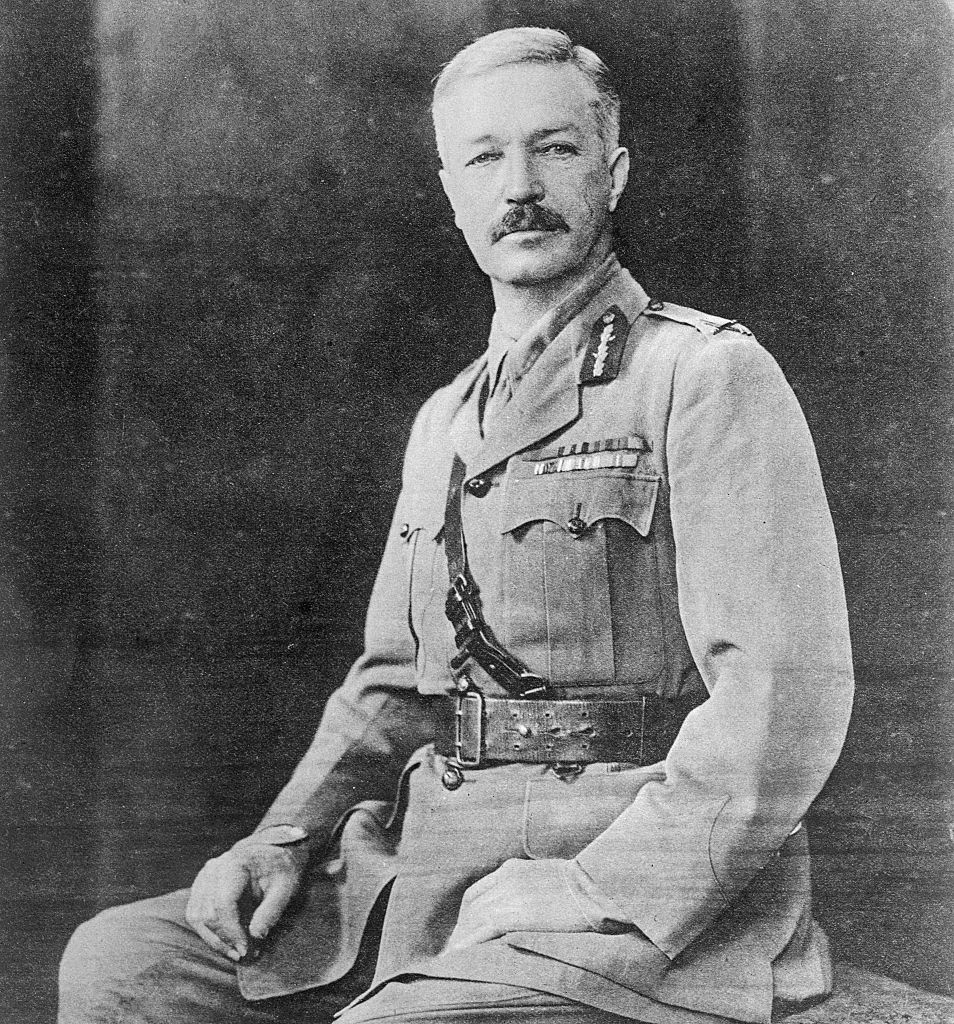What Was Revealed When British Officials Calculated How Much a Colonial Subject’s Life Was Worth

One hundred and five years ago, in April 1919, Mani Ram, a middle-aged dental surgeon, frantically ran to one of his son’s favorite play areas. His son, Madan Mohan, enjoyed playing at Jallianwalla Bagh, an empty plot of land in the center of Amritsar, Punjab, but had not come home. Mani Ram was worried because British officer General Reginald Dyer had just ordered his troops to cordon off Jallianwalla Bagh and open fire on all Indian subjects without warning. His officers fired 1,650 bullets at Indians, killing and injuring hundreds, including children at play.
[time-brightcove not-tgx=”true”]Mani Ram found his son’s lifeless body, among hundreds of others at Jallianwalla Bagh, and carried it home.
Two years later, Mani Ram filed a claim with the imperial government for compensation for the loss of his son. The colonial government had long provided compensation payments to European families when their property was destroyed, or family members were injured or killed. For example, the British government compensated British Loyalists after the American Revolution, British enslavers after the abolition of slavery, and British subjects in India after a large wave of rebellions in 1857.
But 1921 was likely the first and only large-scale compensation for Indian families under British imperial control. British officials were adamant that the payments did not set a precedent and were eager to make them discreetly, burying the procedure, at times, in misclassified files in the archive. These files across London, Delhi, and Chandigarh show a deep racialized and gendered disparity in the value attributed to Indian and European lives, as well as the care distributed to their surviving family members or maimed subjects making such claims. Today, practices of compensation and reparations are still sorted through similar legal structures that echo those very racial disparities.
Dyer’s instruction to shoot Indians at Jallianwalla Bagh was not the only form of imperial violence Indian subjects experienced in 1919. In the early months of 1919, Indians had assembled to protest draconian British policies such as the Rowlatt Act, which granted British officials emergency powers to detain Indian subjects indefinitely without any opportunity for judicial review. In protest, some Indians resorted to attacking the colonial government’s infrastructure, such as railway lines, telegraph wires, and local banks.
British officials responded with great force. They caned, flogged, and detained Indian men and male children without warrant. British officials also declared martial law and opened fire on protesting Indians in Delhi, Bombay, Lahore, Amritsar, Kasur, and Gujrat. British pilots also air bombed parts of Gujranwala.
In the aftermath of the violence, local district magistrates utilized their discretion to allocate ₹523,571 to widows and children of five Europeans who lost their lives in Amritsar and Kasur, as well as to Europeans who were injured, shocked, or attacked during the protests. The compensation funds came from taxes and indemnities leveraged on Indians rather than British funds.
In stark contrast, state officials “distribut[ed] quietly” a sum of ₹14,050 to a handful of Indian subjects “through confidential enquiries,” fearing they should offer at least some reprieve for Indian subjects. Imperial officials hoped that this covert distribution of payments would discourage new requests and limit any precedents for compensation for state violence in the future. Most Indian families who suffered death or injury received no compensation. Those few families who did receive payment received low sums, far less than their European counterparts, and had to rebuild their lives with few resources.
The racial disparity in payments reflected the significant difference in the value placed on a European life compared to that of an Indian, with the former being valued at almost 200 times higher.

Facing global criticism for the violence in 1919, British officials in London instructed the central government in Delhi to investigate the actions of its British officers against Indians while simultaneously guaranteeing amnesty for all imperial officers. In 1920, a committee, mandated by the India Office and Government of India, delivered its final report on the wide array of violence used against Indian subjects. The committee’s four European members justified the widespread violence and brutal tactics employed by British officers in Punjab, while its three Indian members fervently disagreed.
The Government of India argued that its officers were legally permitted to use violence in all situations, including whipping, caning, forced crawling, and indefinite detainment, with only two exceptions. The first exception was Jallianwalla Bagh, where Dyer had ordered troops to fire on the gathering of Indians. The second exception was Gujranwala, a Punjabi locality where British pilots dropped bombs on colonial subjects from planes without warning.
Read More: India’s Income Inequality Is Now Worse Than Under British Rule, New Report Says
Over the following months, Indian legislators became aware of the significant difference in compensation payments between Indians and Europeans in 1919. They demanded equal compensation for Indian families, political reforms, and an official statement of regret from the British government.
While British officials refused to issue a statement or implement substantial political reforms, they reluctantly approved limited compensation for Indians. However, they restricted the scope and amount of these payments. The decision was driven more by concerns for political stability in colonial India and Punjab than by any commitment to racial equality or justice.
Over the next two years, the Government of India and Punjab worked together to establish a compensation process for Punjabi families who had lost family members or were maimed at Jallianwalla Bagh and Gujranwala. Although the government encouraged families to come forward and file claims, many hesitated due to fears that the compensation process was merely a ploy by the imperial government to target the family members of Indians who were involved in the protests during the early months of 1919.
To determine the value of a person’s life, the Compensation Committee was instructed to utilize a method similar to actuarial science. This involved considering the individual’s annual income or projected income, as well as their life expectancy. After deducting one share for the deceased individual, the remaining payment was divided among his dependents. This process was much more limited in its scope compared to the compensation claims of European subjects in 1919.
The colonial government initially failed to include provisions for Indian women and children, believing their lives had little to no economic impact or worth to the livelihoods of families. Officials eventually agreed to assign a fixed nominal amount to account for their lives. In contrast, calculations for European women in 1919 not only considered life expectancy and annual income, but also took into account nearly all injuries and trauma they experienced.
Read More: Why the Caribbean Has the Most Energized Anti-Monarchy Movements
The formal process of compensation implemented by the imperial government sometimes exacerbated the trauma experienced by Indian subjects. The Compensation Committee asked Mani Ram what the value of his 10-year-old son was. Mani Ram testified that his son was an intelligent student with ambitions that could have led him to achieve any position within the government, even that of a governor. The details of the subsequent conversation between colonial officials and Mani Ram are unknown, but we know that Mani Ram pleaded with the government not to “add insult to injury.”

The allocation given to Indians reflected the significant racial inequality that the imperial government placed on the value of its subjects’ lives. After completing their work, the Viceroy’s Council provided ₹226,000 to over 700 Indian individuals as compensation for the excessive violence inflicted by the colonial government in 1919. This sum, supported through funds collected from indemnities, fines, and taxes imposed on Indians, was less than half of what was distributed among almost a dozen European subjects.
This history, carefully uncovered from governmental records, provides us with a deeper understanding of the past, particularly how legal procedures and bureaucratic systems supported British imperial rule and marginalized the value of Indian claims and lives. But this history is also significant in our present time, as it sheds light on modern practices of compensation as demands for restitution, reparations, and reparative justice, continue.
Hardeep Dhillon is an educator and historian at the University of Pennsylvania. She recently authored “Imperial Violence, Law, and Compensation in the Age of Empire, 1919–1922,” which is open access to all readers through The Historical Journal.
Made by History takes readers beyond the headlines with articles written and edited by professional historians. Learn more about Made by History at TIME here. Opinions expressed do not necessarily reflect the views of TIME editors.